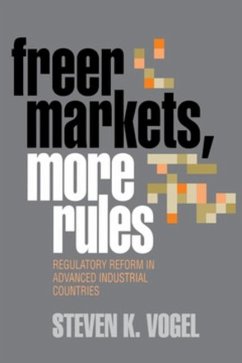In Public Law and Private Power, John W. Cioffi argues that the highly politicized reform of corporate governance law has reshaped power relations within the public corporation in favor of financial interests, contributed to the profound crises of contemporary capitalism, and eroded its political foundations. Analyzing the origins of pro-shareholder and pro-financial market reforms in the United States and Germany during the past two decades, Cioffi unravels a double paradox: the expansion of law and the regulatory state at the core of the financially driven neoliberal economic model and the surprising role of Center Left parties in championing the interests of shareholders and the financial sector.
Since the early 1990s, changes in law to alter the structure of the corporation and financial markets-two institutional pillars of modern capitalism-highlight the contentious regulatory politics that reshaped the legal architecture of national corporate governance regimes and thus the distribution of power and wealth among managers, investors, and labor. Center Left parties embraced reforms that strengthened shareholder rights as part of a strategy to cultivate the support of the financial sector, promote market-driven firm-level economic adjustment, and appeal to popular outrage over recurrent corporate financial scandals. The reforms played a role in fostering an increasingly unstable financially driven economic order; their implication in the global financial crisis in turn poses a threat to center-left parties and the legitimacy of contemporary finance capitalism.
Since the early 1990s, changes in law to alter the structure of the corporation and financial markets-two institutional pillars of modern capitalism-highlight the contentious regulatory politics that reshaped the legal architecture of national corporate governance regimes and thus the distribution of power and wealth among managers, investors, and labor. Center Left parties embraced reforms that strengthened shareholder rights as part of a strategy to cultivate the support of the financial sector, promote market-driven firm-level economic adjustment, and appeal to popular outrage over recurrent corporate financial scandals. The reforms played a role in fostering an increasingly unstable financially driven economic order; their implication in the global financial crisis in turn poses a threat to center-left parties and the legitimacy of contemporary finance capitalism.
Dieser Download kann aus rechtlichen Gründen nur mit Rechnungsadresse in A, D ausgeliefert werden.









